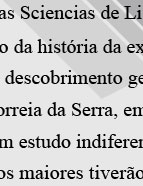

................................
The "Annales School", as a direct heir to the "Synthesis School", directly criticised traditional political history. It may be said that the "Annales" were born in opposition to political history. In addition to the afore-mentioned Pirenne and Berr, other thinkers influenced the launch of the "Annales". In 1903, François Simiand (1873-1935) criticised the three idols of the positivist historians: the political, the individual and the chronological, and suggested aligning history with the social sciences.
The first generation of the "Annales" was launched in 1929 by Marc Bloch and Lucien Febvre, as mentioned above, in what was the first major systematic paradigm shift in 20th century historiography. It involved a profound renewal of historiographical discourse, but more importantly, it heralded a reflection on the social function of historical science. The "Annales" counterposed an economic and social history against the political idol, a total history against the individual, and against the chronological the plurality of historical times, a concept later developed by Fernand Braudel and to which in Portugal a clear approach was seen with Vitorino Magalhães Godinho (1918-2011), also a follower of this new generation of the "Annales", with his "Complexos Historico- Geográficos" ["Historical-Geographical Complexes"].
Based on the antagonism towards political history, the historical discipline was renewed. All history became social history. History was transformed into a kind of “super science” of the social. At the same time, a new notion of “document” was proposed. Its written and narrative character lost exclusivity. Instead, an approach based on plurality gained prominence. In addition to written testimonies, documents took on a conceptual breadth. Oral, visual, material, statistical, iconographic and cartographic records were now accepted, while the historical fact was regarded as a construction by the historian, acquiring meaning in its relationship with the global. Ultimately, all reflection on the past was a social construct.
